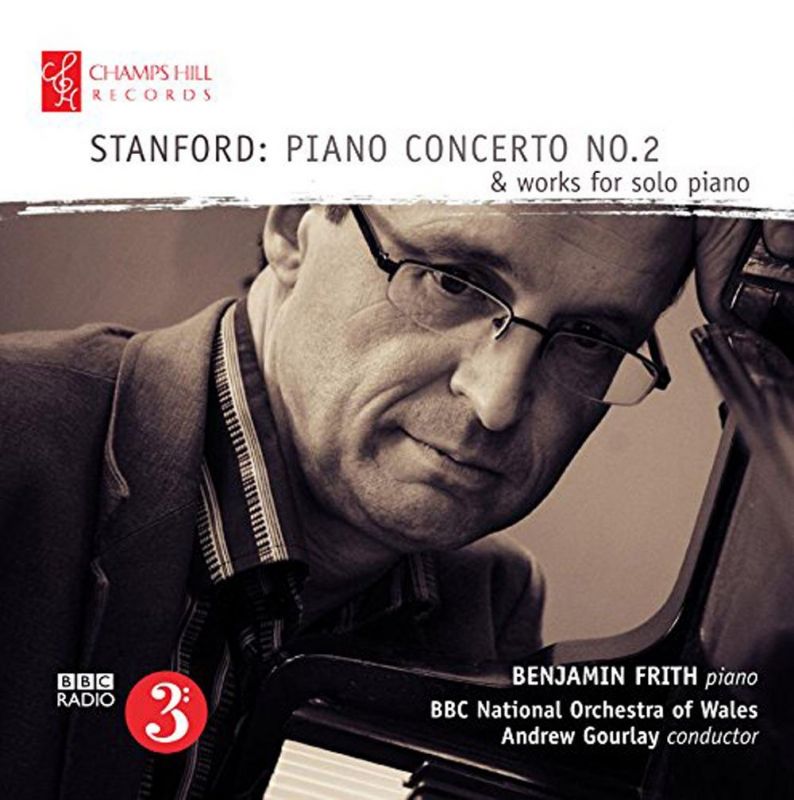STANFORD Piano Concerto No 2
View record and artist detailsRecord and Artist Details
Composer or Director: Charles Villiers Stanford
Genre:
Orchestral
Label: Champs Hill
Magazine Review Date: 07/2016
Media Format: CD or Download
Media Runtime: 73
Mastering:
DDD
Catalogue Number: CHRCD042

Tracks:
| Composition | Artist Credit |
|---|---|
| Concerto for Piano and Orchestra No. 2 |
Charles Villiers Stanford, Composer
Andrew Gourlay, Conductor BBC National Orchestra of Wales Benjamin Frith, Piano Charles Villiers Stanford, Composer |
| (3) Rhapsodies from Dante |
Charles Villiers Stanford, Composer
Benjamin Frith, Piano Charles Villiers Stanford, Composer |
| (6) Characteristic Pieces, Movement: Study |
Charles Villiers Stanford, Composer
Benjamin Frith, Piano Charles Villiers Stanford, Composer |
| (6) Characteristic Pieces, Movement: Rondel |
Charles Villiers Stanford, Composer
Benjamin Frith, Piano Charles Villiers Stanford, Composer |
| 5 Caprices, Movement: Tempo di Valse |
Charles Villiers Stanford, Composer
Benjamin Frith, Piano Charles Villiers Stanford, Composer |
Author: Jeremy Dibble
Benjamin Frith, clearly a fervent advocate of Stanford’s chamber music, brings out the abundant invention of the concerto in the clarity and nuance of his touch and phrasing. In particular, the visionary and intimate chamber idiom of the first movement’s development, introspective in mood, is especially moving and beautifully shaped. This same sensitivity is brought by Frith to the little-known three Dante Rhapsodies, Op 92, which Stanford wrote for Percy Grainger in 1904 – unjustly neglected tone-poems for solo piano, full of emotional insight and craftsmanly legerdemain. This is a fine recording in generous sound, with sympathetic orchestral playing from the BBC NOW and its conductor Andrew Gourlay. Might Frith perhaps now tackle the much lighter but equally delightful Piano Concerto No 1?
Discover the world's largest classical music catalogue with Presto Music.

Gramophone Digital Club
- Digital Edition
- Digital Archive
- Reviews Database
- Full website access
From £8.75 / month
Subscribe
Gramophone Full Club
- Print Edition
- Digital Edition
- Digital Archive
- Reviews Database
- Full website access
From £11.00 / month
Subscribe
If you are a library, university or other organisation that would be interested in an institutional subscription to Gramophone please click here for further information.




